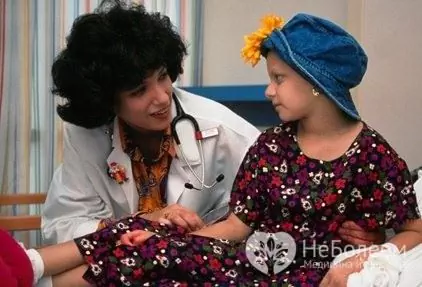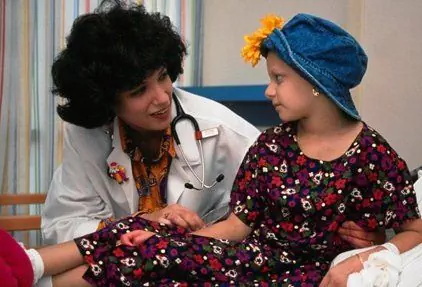- Author Rachel Wainwright wainwright@abchealthonline.com.
- Public 2023-12-15 07:39.
- Last modified 2025-11-02 20:14.
Oncology

Oncology is a branch of medicine that is devoted to the study, treatment and prevention of tumor diseases. A tumor is a pathological formation in the body, consisting of cells that have lost their inherent structure and properties and began to grow uncontrollably. In oncology, tumors are divided into benign and malignant.
Cells of benign tumors are differentiated in almost the same way as cells of healthy tissue, that is, they have preserved structure and function, but control over division is impaired. Such tumors have a clear border and do not destroy the surrounding tissues, although they can compress internal organs, disrupting their work. Benign tumors are treated with medication or surgery, and usually do not recur after treatment. The danger is mainly that in some cases they can become malignant.
Malignant tumors consist of atypical cells, that is, cells that have lost the traits of typicality, or differentiation. Such cells divide chaotically and are able to penetrate the surrounding healthy tissues, causing their destruction. They are also able to metastasize, that is, spread with the blood or lymph flow, and sometimes along the nerve pathways, forming daughter tumors. A malignant tumor causes the destruction of tissues and the formation of toxic products of necrosis that poison the body, therefore, diseases characterized by the formation of malignant tumors have a severe course.
Early and accurate diagnosis is of great importance in oncology. The danger of tumors lies in the fact that in the first, curable stages, they are usually "silent" and do not cause concern. Therefore, it is necessary to show oncological alertness, and when the first signs of tumor development appear, consult a doctor. It is important to have regular medical examinations.
Malignant tumors in advanced stages are considered incurable. In the initial stages of development, tumors are quite treatable. Treatment of oncological diseases is carried out primarily surgically, as an addition to the operation, the use of drugs that suppress the growth of cells - cytostatics, and radiation therapy, based on the fact that atypical cells are subject to destruction from exposure to those doses of radiation that are relatively harmless to healthy cells - are used. The complex application of all three methods usually allows you to successfully cope with the disease.
Found a mistake in the text? Select it and press Ctrl + Enter.



